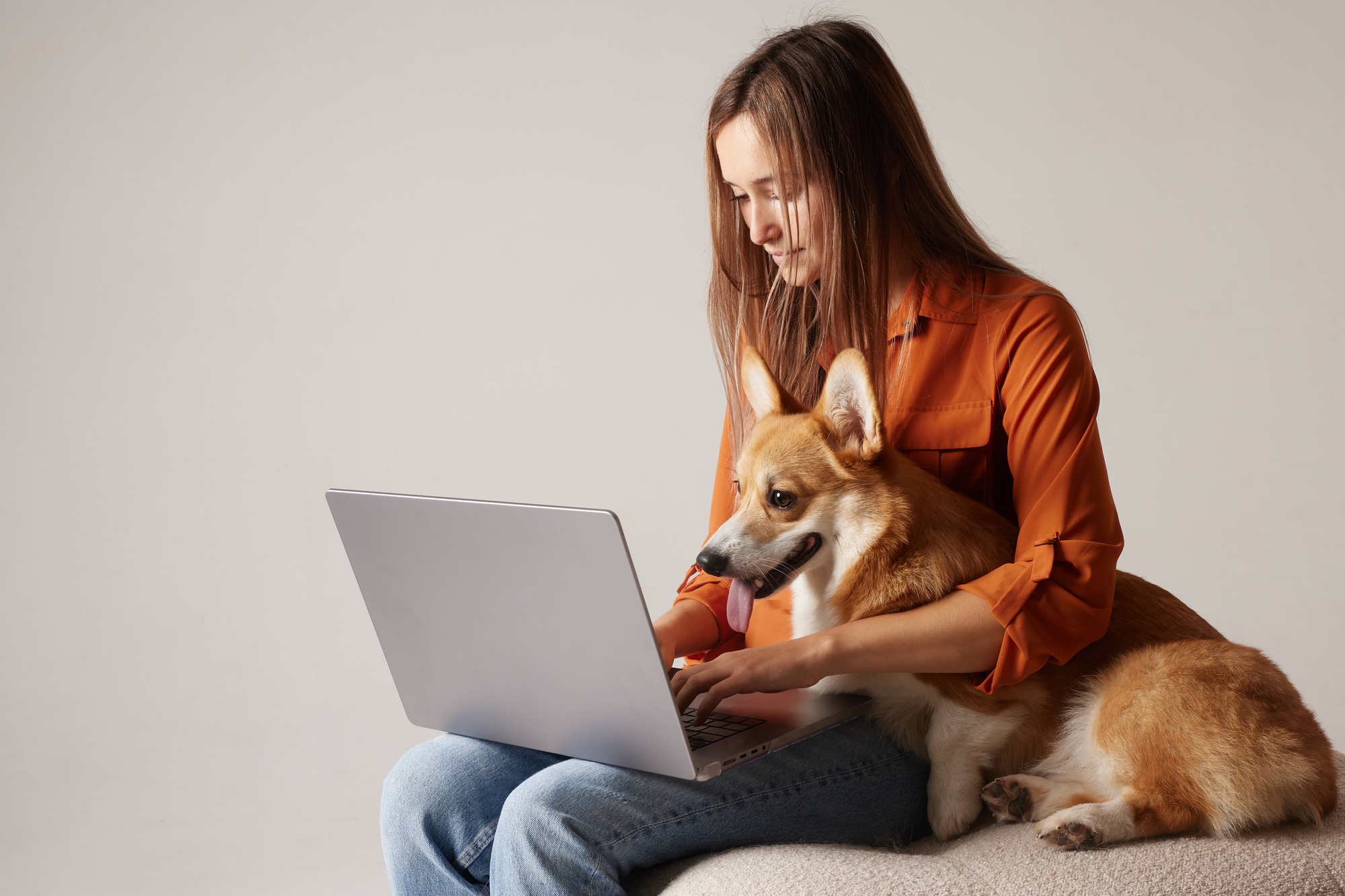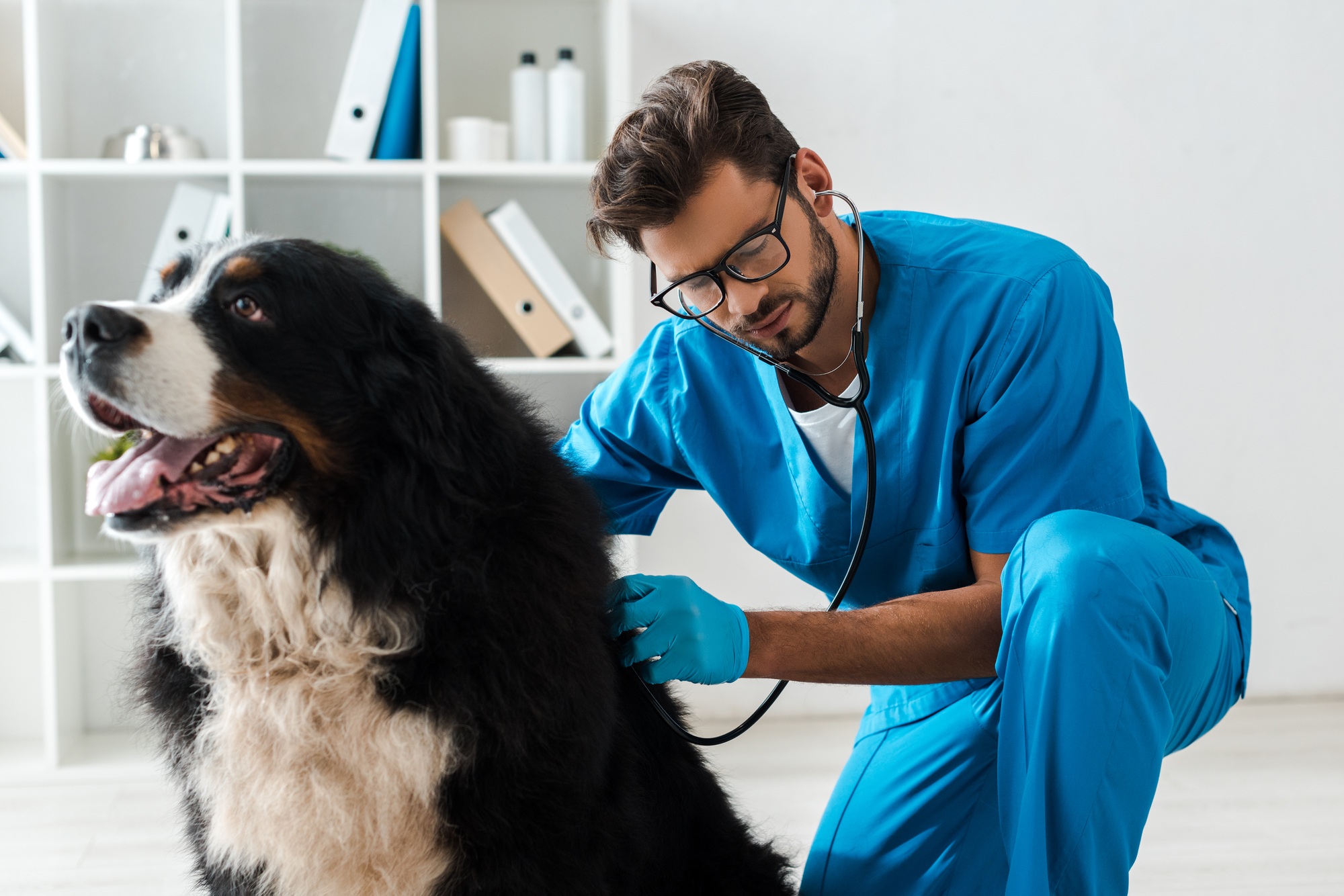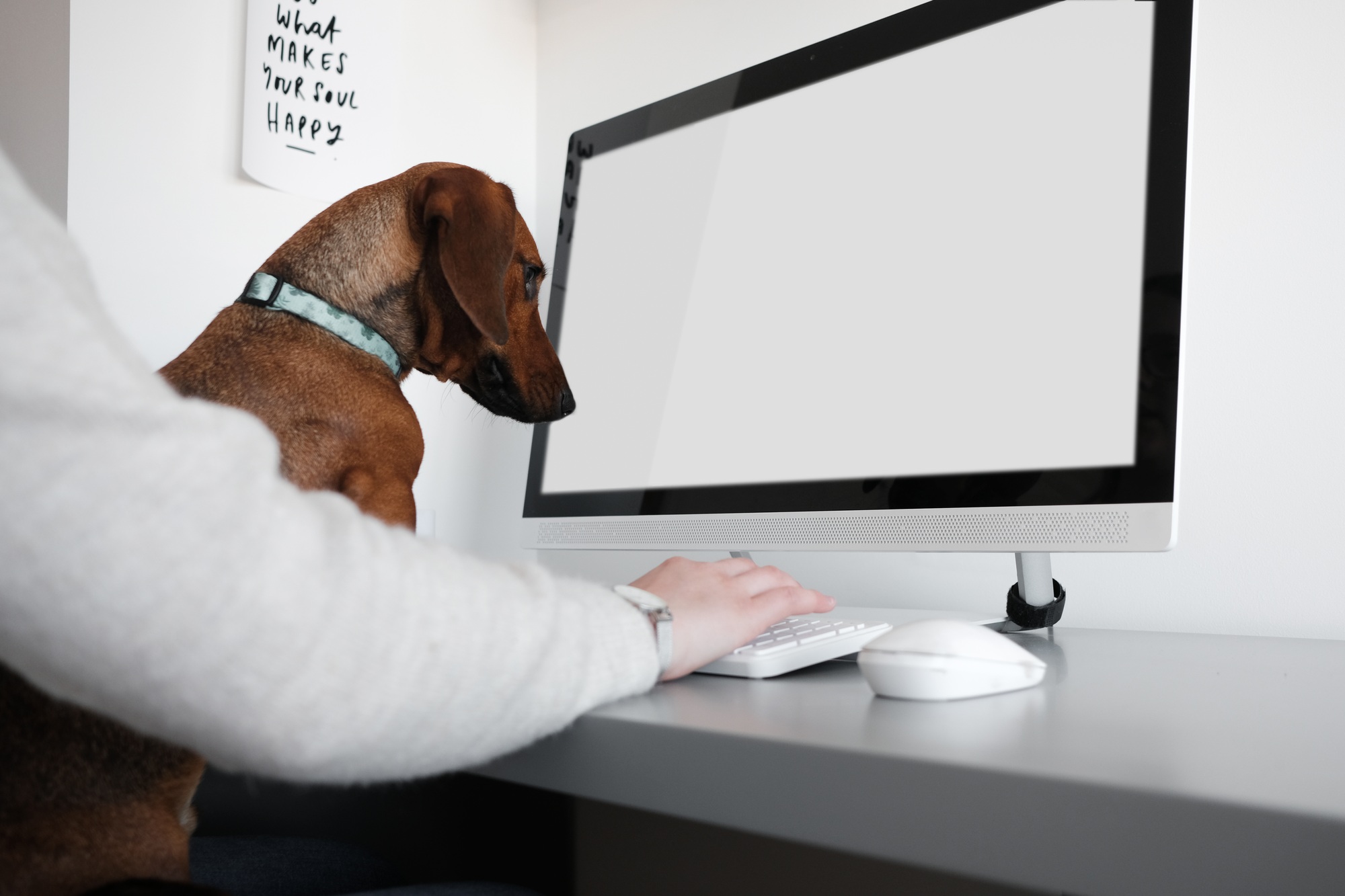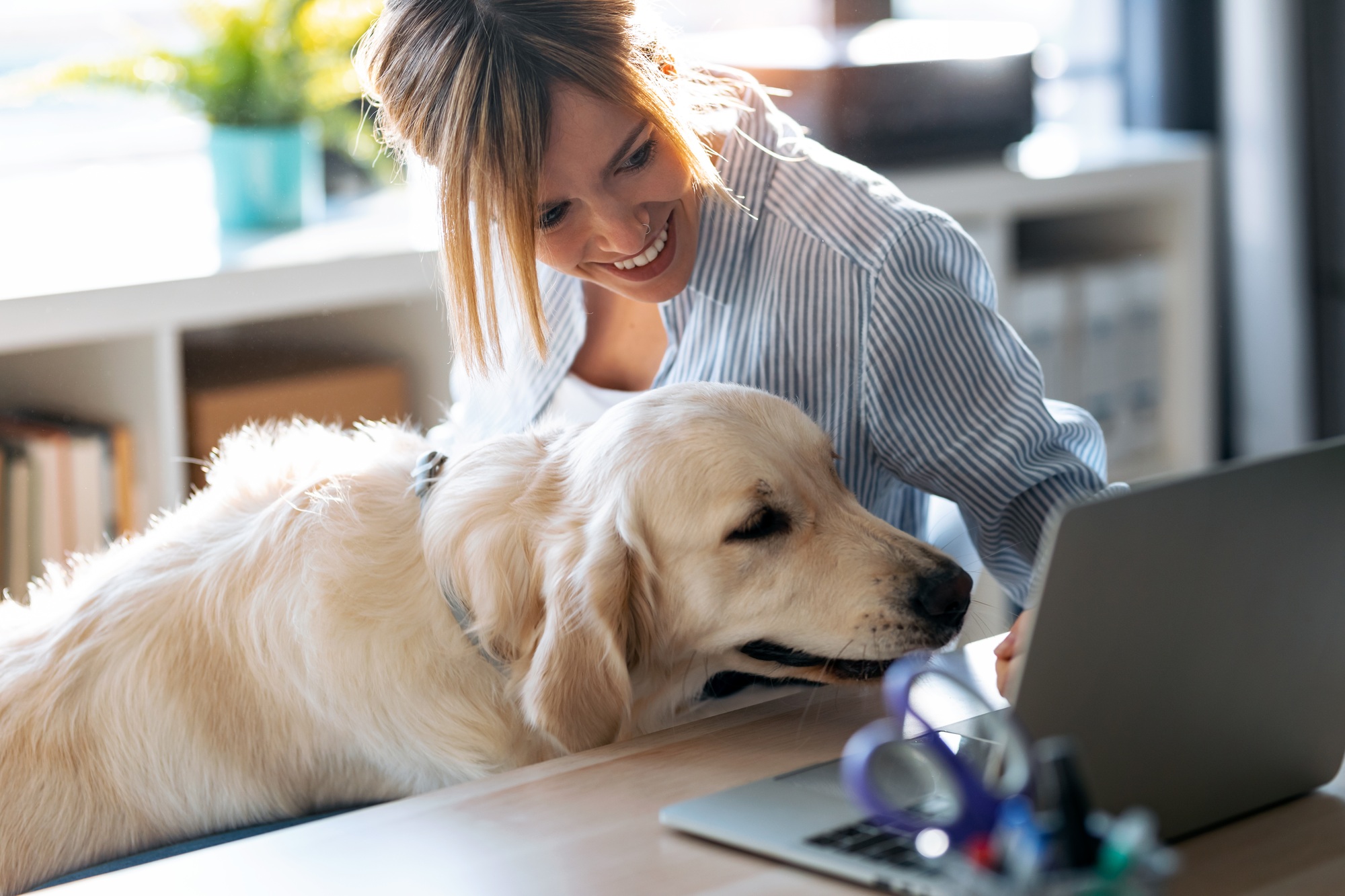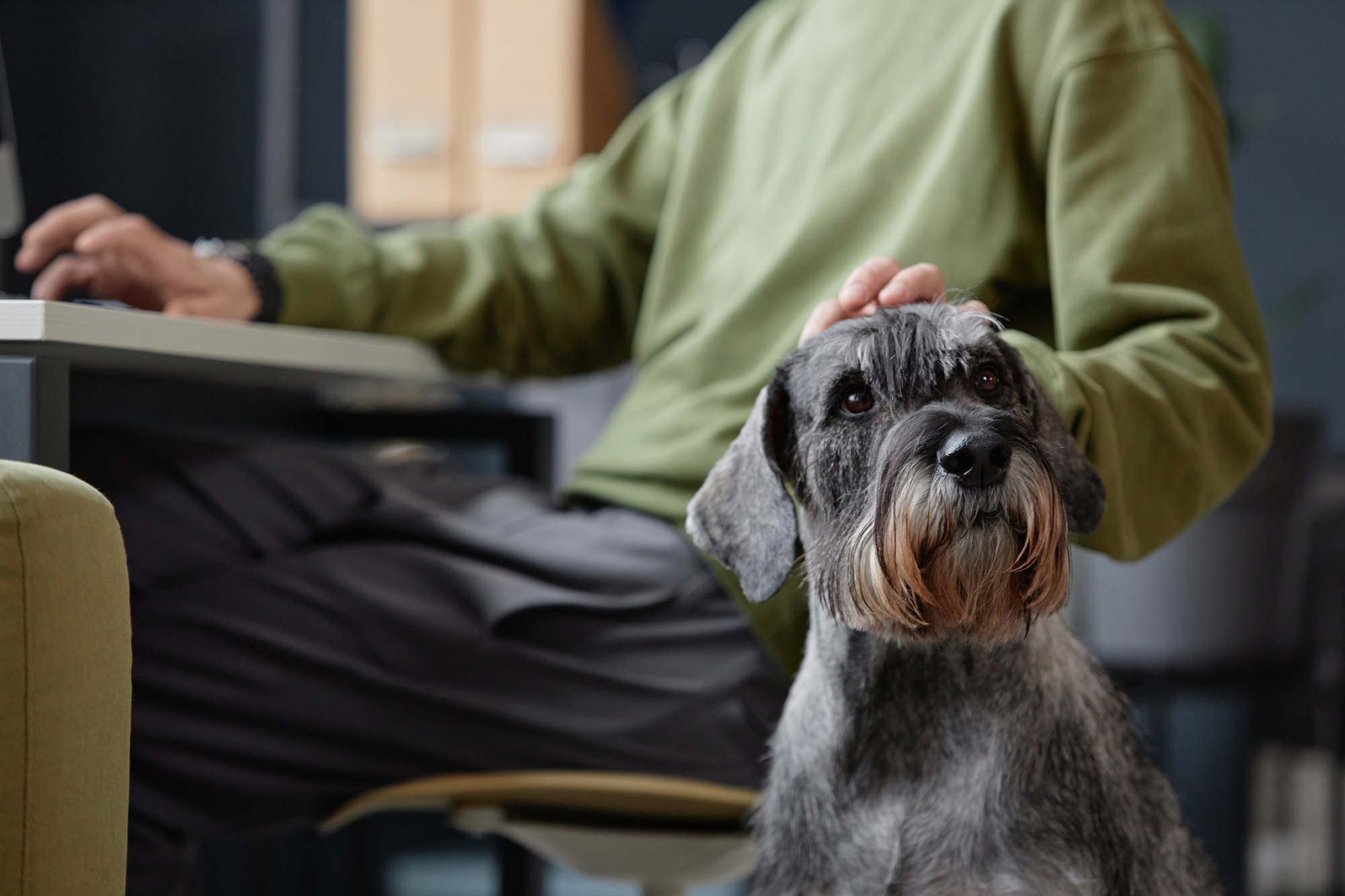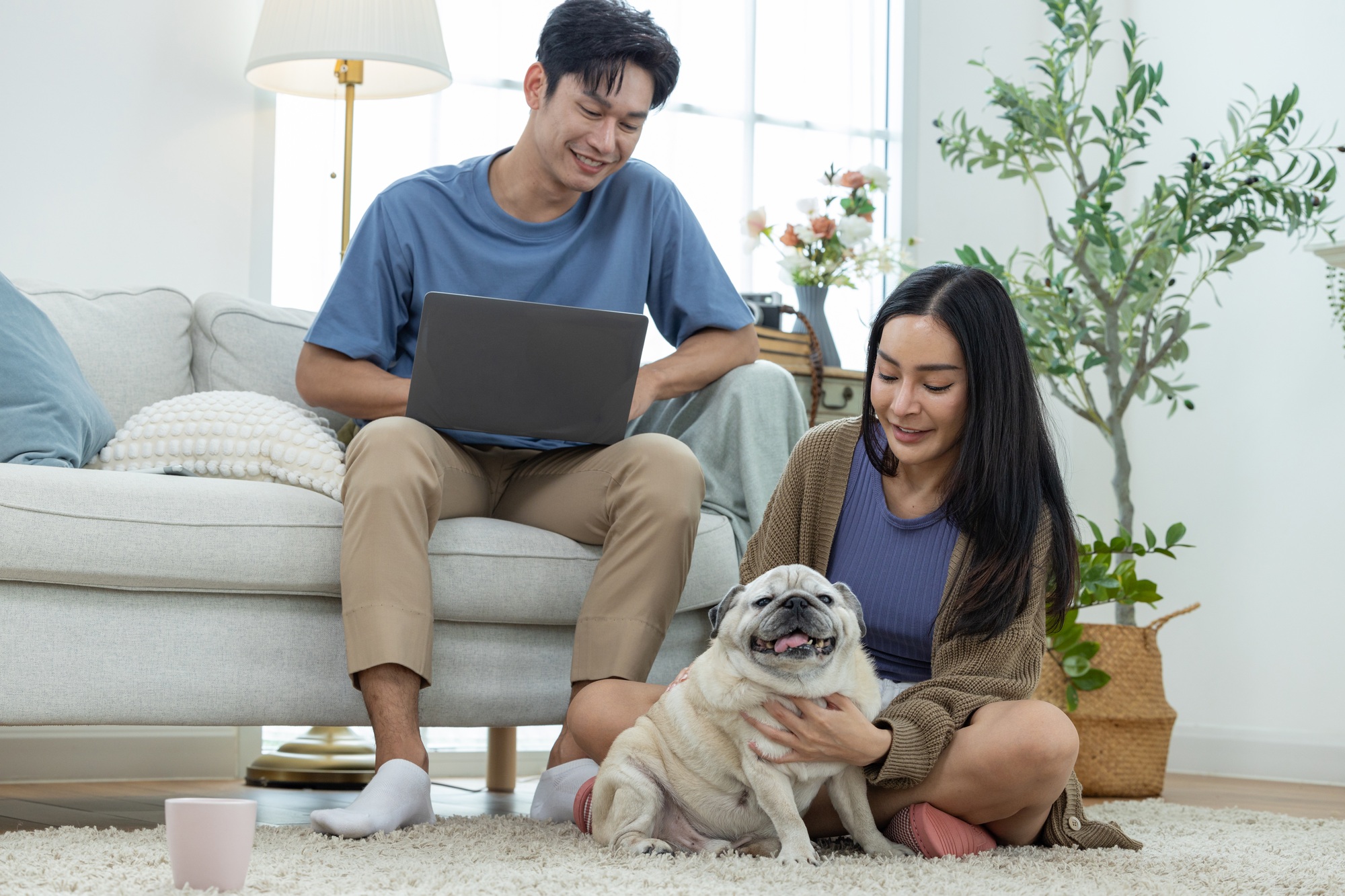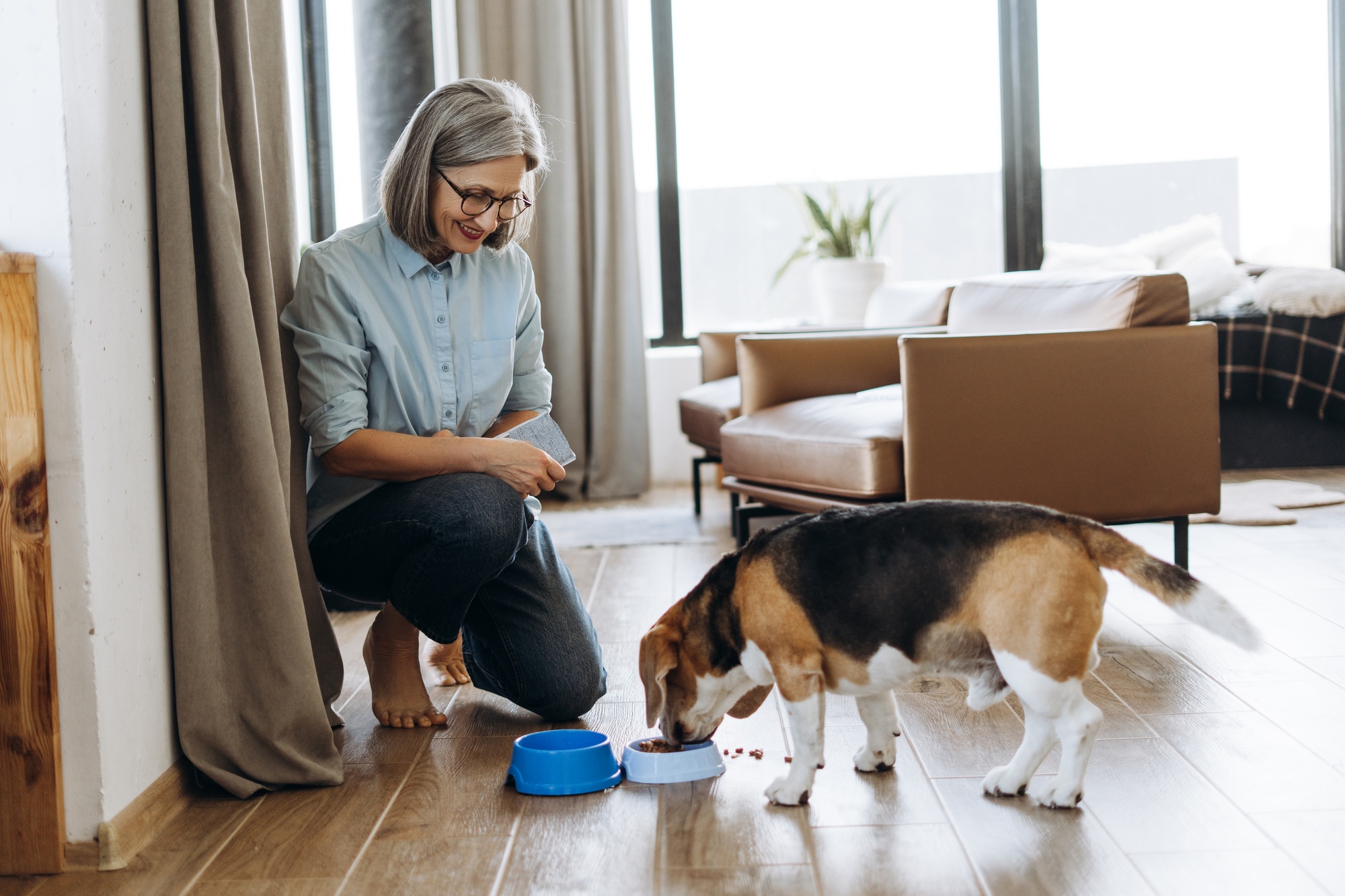
Working remotely offers many benefits, but it can also bring challenges like isolation, stress, and burnout. If you’re working from home, one of the best ways to combat these stressors is by having a furry friend by your side. Dogs, known for their loyalty and affectionate nature, can provide emotional support and help improve mental health. In this article, we’ll explore how your pup can become a valuable stress-relief partner in your remote job.
From reducing anxiety to boosting your mood, let’s dive into the many ways dogs can help improve your mental health while working remotely.
1. Reducing Stress and Anxiety with Your Dog
1.1 How Petting a Dog Lowers Cortisol Levels
One of the key benefits of having a dog during your remote workday is the reduction in stress levels. Research shows that spending time with pets can lower cortisol (the stress hormone) and increase the production of oxytocin, the “feel-good” hormone. Simply petting your dog for a few minutes can help calm your nerves and reduce anxiety.
When you’re feeling overwhelmed or stressed by deadlines or long meetings, taking a few minutes to cuddle with or pet your dog can make a big difference. Their soothing presence helps lower stress levels, allowing you to return to your work feeling more grounded and calm.
1.2 Dogs as Emotional Support Companions
Dogs are known to offer emotional support, and they excel at sensing their owner’s feelings. If you’re experiencing anxiety, sadness, or frustration during your workday, your dog can offer comfort. Many remote workers find that having their dog nearby provides a sense of security and emotional stability, which can help ease mental strain.
The act of having your dog by your side can help reduce feelings of loneliness and isolation, which are common in remote work settings. Your dog’s unconditional love and companionship can make you feel supported, and their presence often reminds you to take breaks and care for yourself.
2. Encouraging Regular Breaks and Physical Activity
2.1 Walking Your Dog for Stress Relief
Taking regular breaks is essential to maintaining mental well-being during the workday, and what better way to break up your routine than with a walk? Walking your dog not only provides them with much-needed exercise but also gives you an opportunity to clear your mind and reduce stress. A brisk walk around the block can help you feel more energized and focused once you return to your desk.
Studies have shown that physical activity boosts mood and reduces symptoms of anxiety and depression. Incorporating dog walks into your daily routine can give you that much-needed mental reset, helping you come back to work feeling refreshed and less overwhelmed.
2.2 Playtime for Mental Rejuvenation
If you’re feeling mentally drained after hours of work, a quick play session with your dog can be incredibly rejuvenating. Whether it’s a game of fetch, tug-of-war, or simply playing with a favorite toy, these activities allow you to unwind and recharge your mental batteries. Playtime with your dog provides a fun and interactive way to release stress while keeping your dog engaged and happy.
Regularly playing with your dog encourages positive mental health habits, such as mindfulness and focus on the present moment. It allows you to take a break from work while strengthening the bond with your pet, promoting overall well-being for both of you.
3. Boosting Productivity with Your Dog’s Support
3.1 Dogs Can Improve Focus and Concentration
While dogs are often thought of as distractions, they can actually help improve your productivity. Having your dog by your side while working remotely can create a more pleasant and calm environment, helping you focus better on tasks. Dogs help set a rhythm to your day with their natural routines, encouraging you to take breaks and maintain structure.
For many remote workers, the presence of their dog in the room helps them stay present and engaged. Dogs often offer a sense of companionship that motivates workers to stay on task, without the feelings of isolation that can come from working alone. A dog’s consistent, calming presence can keep you focused and make even the busiest workdays feel more manageable.
3.2 Dogs Help Maintain a Routine
Remote work often lacks structure, which can lead to productivity dips and inconsistent work habits. However, having a dog can help create a routine that benefits both you and your pet. Dogs thrive on regular schedules for feeding, walks, and playtime, which can bring structure to your workday. This predictability ensures that you stay on track, and taking time out for your dog’s needs helps break up long work hours.
Establishing a routine with your dog also means setting aside time for self-care and relaxation, which is essential for mental health. By incorporating these moments into your day, you create a balance that enhances productivity and well-being.
4. Creating a Relaxing Environment for Mental Clarity
4.1 The Power of Quiet Time with Your Dog
Having your dog nearby can create a peaceful atmosphere that fosters mental clarity and relaxation. Some remote workers find that having their dog rest at their feet or sit next to them during the day helps them feel less stressed and more at ease. This calm environment can help you focus on tasks without the feeling of being overwhelmed.
While working, it can be easy to fall into a state of constant busyness. Your dog’s need for quiet moments reminds you to slow down and take deep breaths. These small pauses help reduce anxiety and give your mind the space it needs to think clearly.
4.2 Using Your Dog to Manage Work-Related Stress
Dogs have a unique ability to offer comfort in moments of stress. During high-pressure workdays or after tough meetings, your dog can provide emotional support by simply being present. Whether you’re sitting at your desk or taking a break, the sight of your dog resting peacefully can help remind you to relax and take things one step at a time.
When work pressures mount, spending a few minutes with your dog can help lower your heart rate and restore a sense of calm. Their presence creates a natural mental reset that helps you return to your tasks with a clearer mindset.
5. Fostering a Positive Work-Life Balance
5.1 Dogs Encourage Healthy Work Boundaries
It’s easy to blur the lines between work and personal life when you’re working remotely. Without physical office boundaries, many remote workers struggle to “turn off” after the workday ends. However, having a dog can help you create a more balanced work-life routine. The responsibility of taking care of a dog forces you to take breaks, exercise, and engage in activities outside of work.
A dog’s need for regular care and attention can be a healthy reminder to set boundaries and prioritize self-care. Whether it’s a walk during lunch or playtime after work, your dog ensures that you take the time to disconnect and recharge for the next day.
5.2 The Emotional Benefits of a Dog’s Love
Perhaps the most significant way dogs support mental health is through the emotional connection they offer. Dogs have an innate ability to sense our emotions and respond with affection and comfort. Their unconditional love helps combat feelings of loneliness, isolation, and stress, especially for those working alone from home.
Simply knowing that your dog is there to greet you after a tough meeting or to snuggle during breaks can boost your emotional resilience and overall happiness. Their companionship creates a sense of belonging and support, both of which are essential for maintaining good mental health while working remotely.
Conclusion
Dogs are more than just pets—they are partners in maintaining mental health and well-being, especially when working remotely. From reducing stress to boosting productivity, your dog’s companionship can help you stay focused, positive, and emotionally balanced. By incorporating moments of connection and self-care with your dog, you can create a healthier, more enjoyable work-from-home routine.
Whether you’re seeking a calming presence or a motivational break, your dog will be there to provide the emotional support you need to thrive in your remote job.



